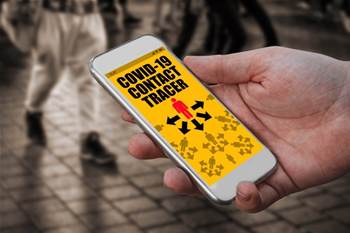Australia’s forthcoming contact tracing app will be fundamentally different to Singapore’s TraceTogether, with improvements having already been made to the latter's functionality.
Acting health department secretary Caroline Edwards told a senate inquiry into COVID-19 on Thursday that although the app is derived from TraceTogether, its code base will be unique.
“I don’t think the Singapore TraceTogether app is the model,” she said in response to questions from Labor senator Murray Watt, adding that it has been an “important contributor”.
“Singapore provided, openly, its code, and we’ve drawn upon that code in developing our own app, which is Australian-based with our own improvements.
“I understand we’ve drawn on the code and used it, but we have added and changed it so that it’s unique for our circumstances.”
The admission goes some way to explaining why health minister Greg Hunt walked back an earlier promise by the government to release all of the app’s source code.
“The first thing we want to do is make sure that we're protecting the safety and the privacy of individuals. Everything that can be released, will be, for sure,” he said on Tuesday.
Bluetooth improvements
Like TraceTogether, Australia’s tracing app will use Bluetooth to identify when two people with the app installed come within one-and-a-half metres of one another for 15 minutes or more.
It will do this by exchanging encrypted unique identifiers that will be stored on an individual’s device for a rolling period of 21 days.
These IDs would then only become available to state and territory health professionals if a person tested positive to COVID-19 and consented to the release of the data.
“If [the IDs are] never needed to be used, then they’ll sit there until we delete the app and not go anywhere at all,” Edwards said.
She said the only data to be stored on what has previously been described as an encrypted ‘national data store’ is the name, phone number, post code and age range of the individual, which is information that is required when a person first downloads the app.
But Australia’s app, which is being developed by the Digital Transformation Agency, is expected to build on TraceTogether elements, particularly around Bluetooth on iPhones.
Edwards said that the DTA app would not need to constantly run in the foreground for contacts to be recorded, although he admitted Bluetooth would work better with the app open.
“We’ve moved beyond that. I’ve been assured the Bluetooth technology will work,” she said.
“Both [the Android and iPhone apps] are working and improving, and working better than some of those problems that were experienced in Singapore.”
Edwards noted that since TraceTogether was developed there had been improvements to how it runs and its workings with Apple and Google.
“It's not perfect but it is good, and Apple and Google are also working on making improvements over time,” she said.
Edwards also defended the government decision to build its own app, instead of waiting for Google and Apple’s API.
“We’ve gone down the path of taking the [TraceTogether] source code, working with Apple and Google to make an app that meets our circumstances, and which is entirely limited to providing the data, through a national store, in encrypted form back to state health officials - not to other people, not in any other way,” she said.
“We’ve developed it to suit those circumstances to meet the privacy and health needs of Australia.”
Legislation
Despite comments from government services minister Stuart Robert this week, Edwards said she was “not aware” of any formal decision yet to introduce legislation to govern the app.
She said legislation was just one of a number of options currently being considered by the government “to ensure [the app] meets the specifications of the policy”.
Other options include “policy constraints and government decisions”, arrangements with the states and territories around the use of data and “potentially activity under the biosecurity declaration”.
But despite what approach the government decides on, Edwards said “privacy and other issues will be dealt with before the app is launched”.
Prime Minister Scott Morrison has already ruled out Commonwealth access to the data, including by law enforcement agencies.
Update Friday 24 April: The Sydney Morning Herald has since confirmed that the government will introduce legislation to govern the app, though the details are yet to be finalised.


.jpg&h=140&w=231&c=1&s=0)























